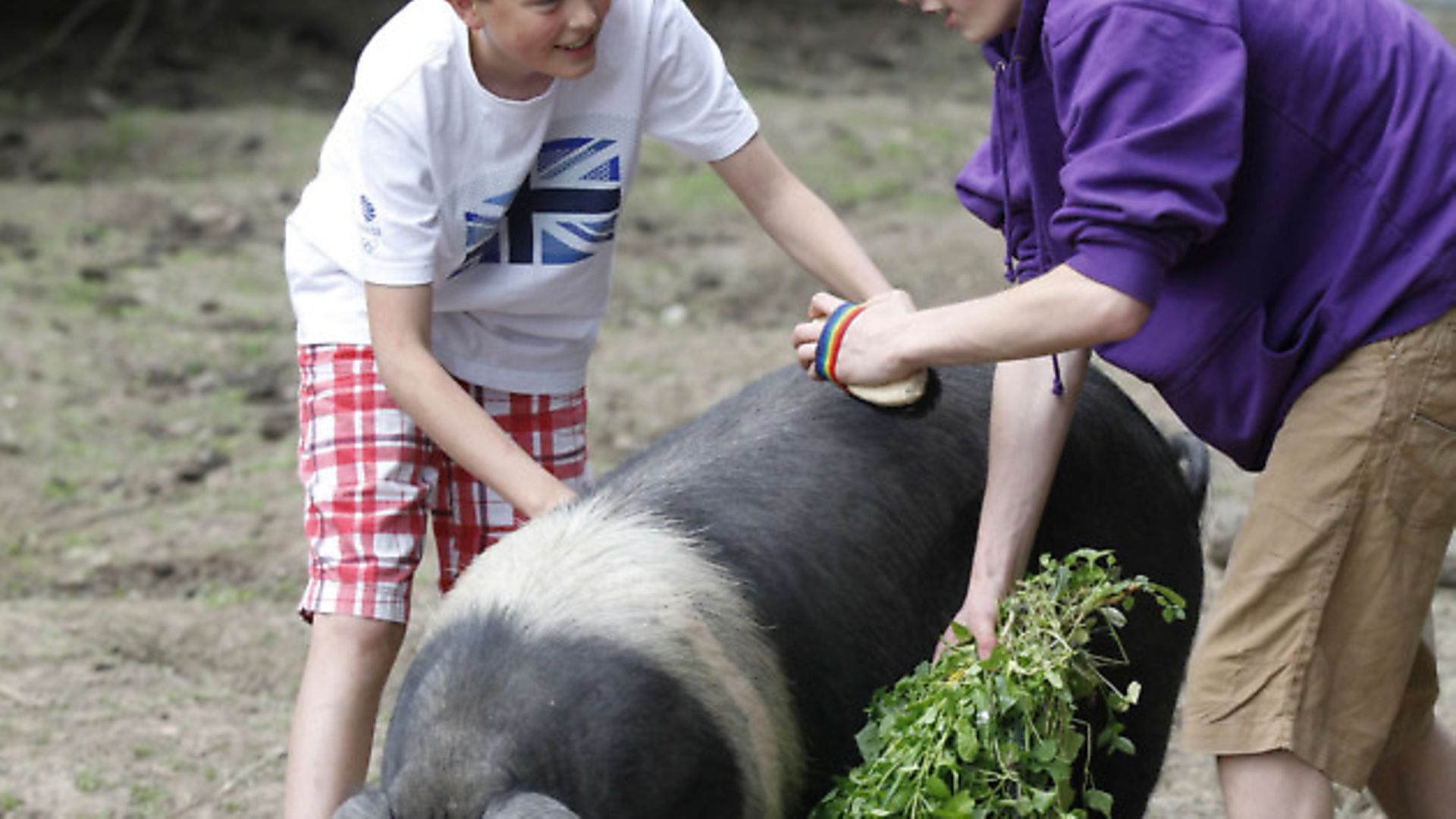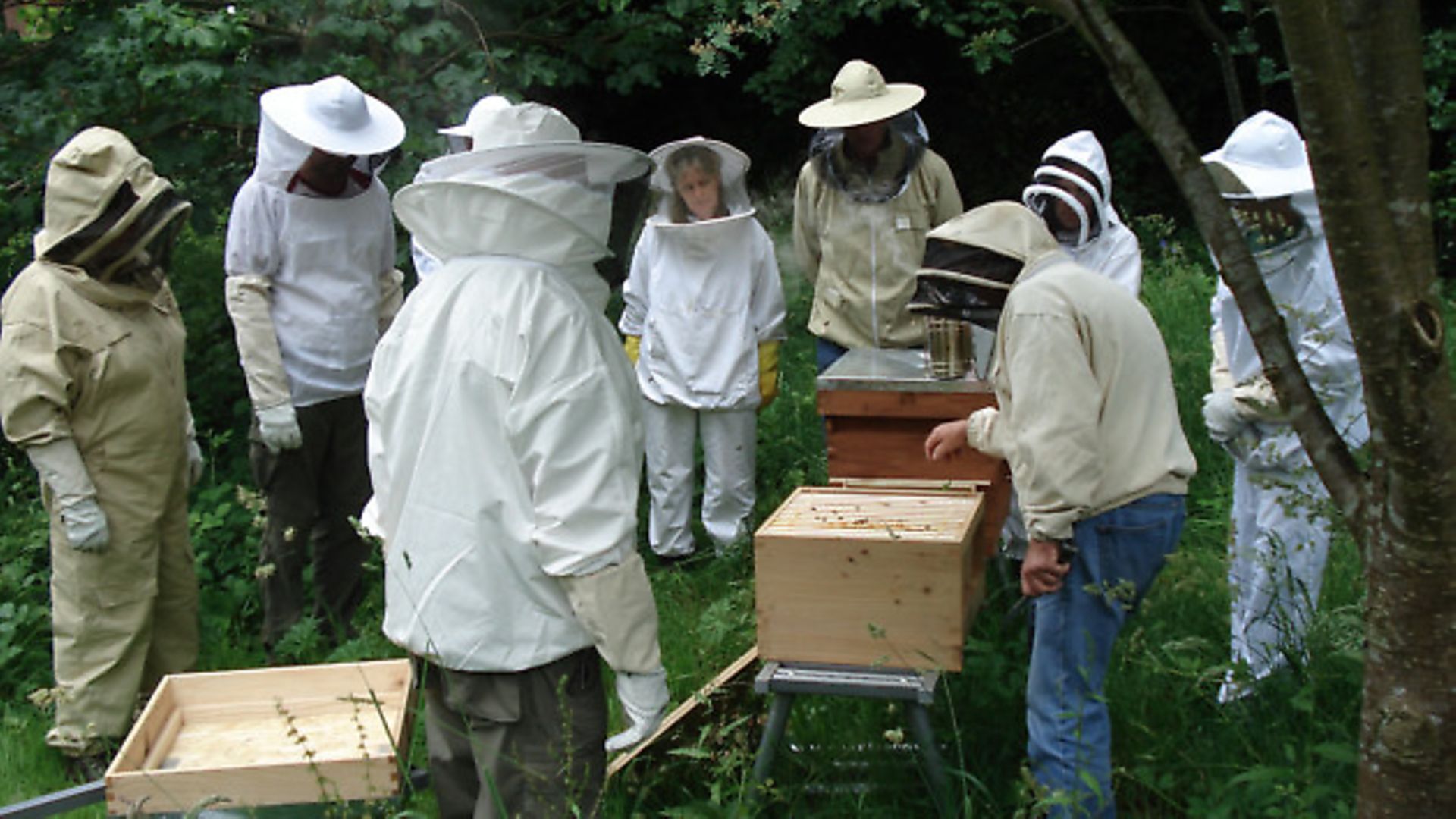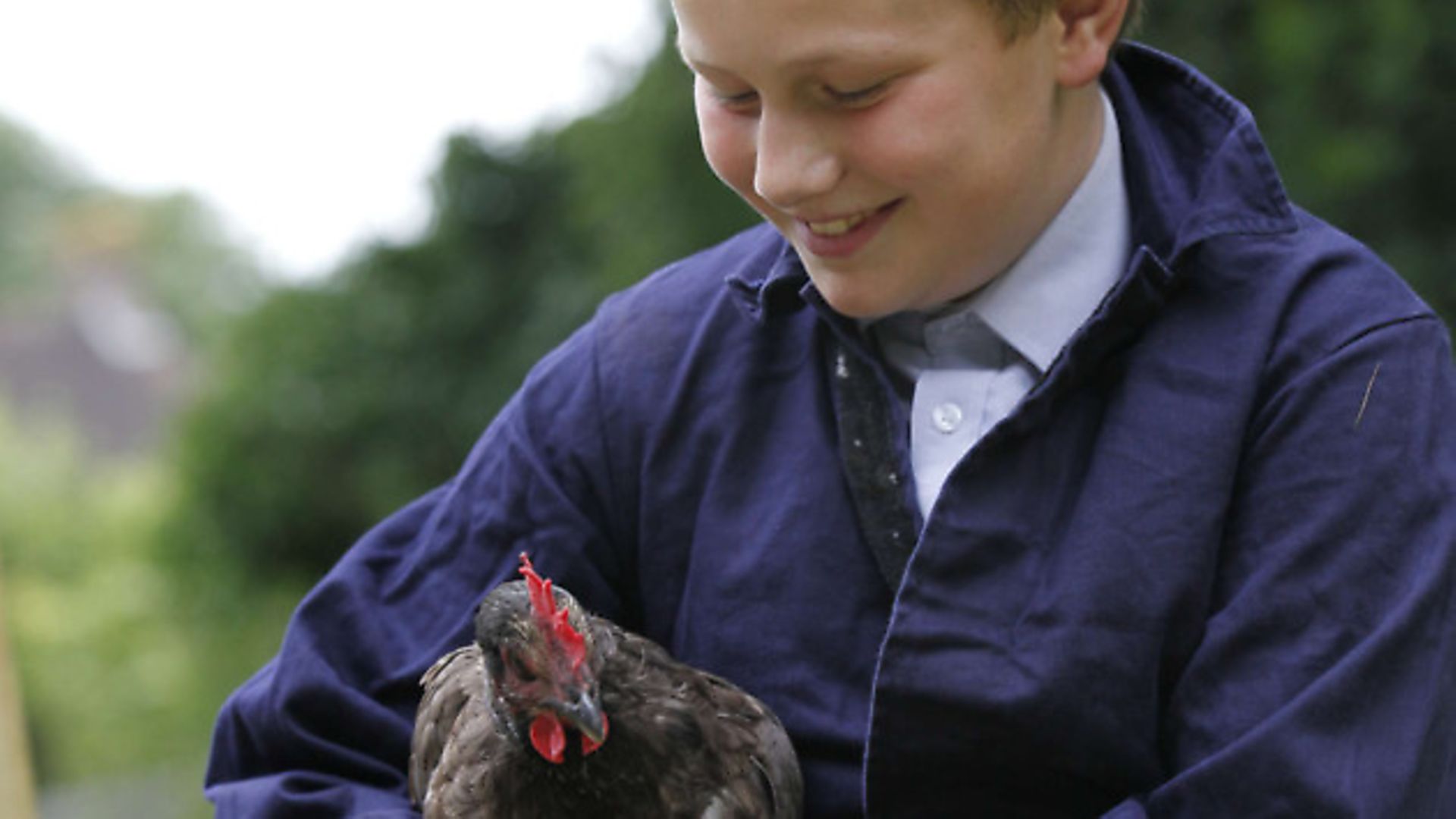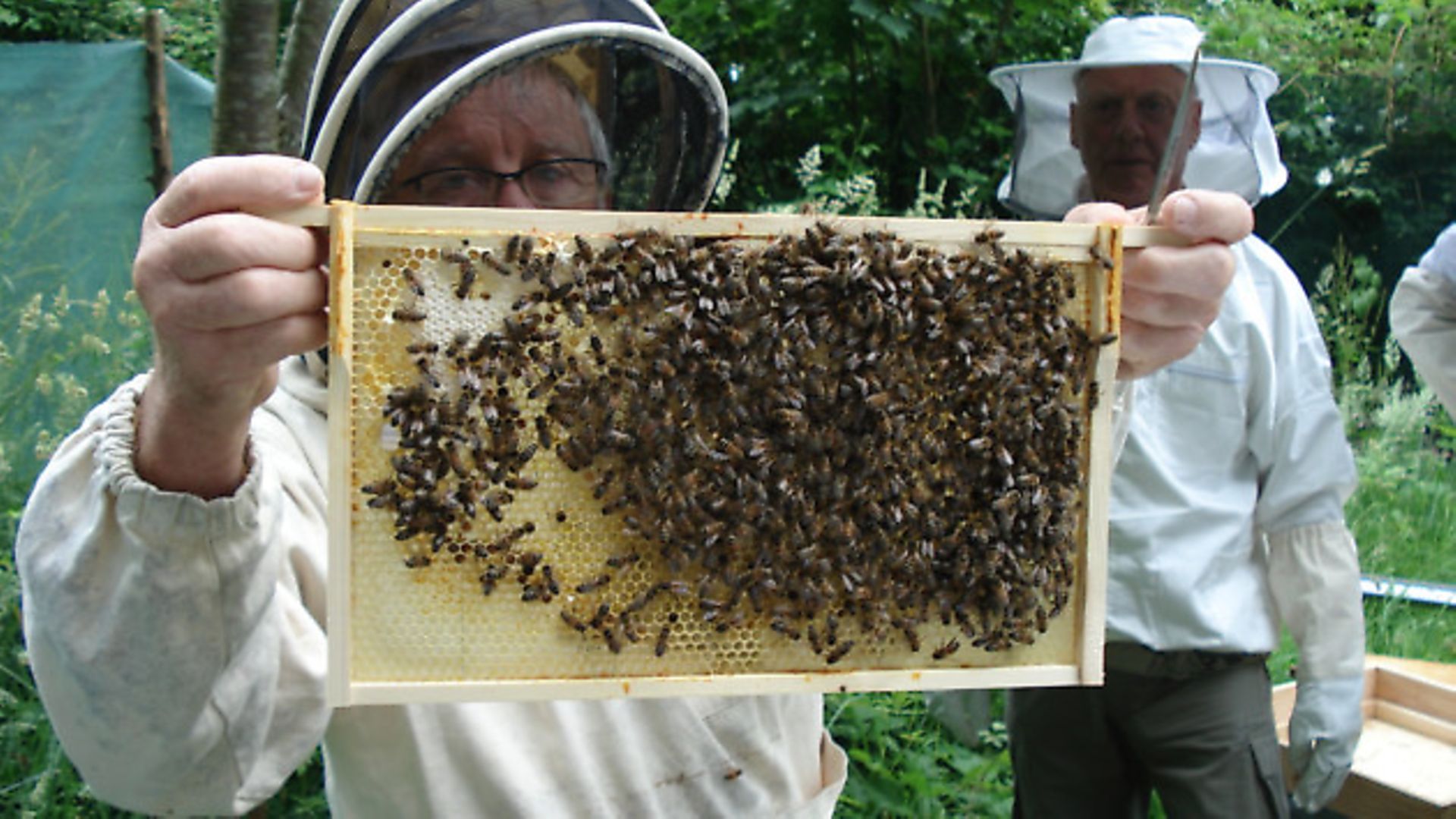Students at a Sussex college not only interact with chickens, they have pigs and bees as well. Helen Stockton reports

“Would it be possible to take chickens into a classroom at school so that students could practise handling them?”
Having been a Programme Development and Marketing Manager in adult education for a number of years, I was used to trying to meet slightly unusual requests, but this one I couldn’t resolve. The answer then, from that particular school, was a firm ‘no’ and a toy chicken had to act as a stand-in.
The idea for a chicken keeping course had arisen from some research carried out in 2009 showing that the most popular non-fiction book borrowed from the county public libraries had been one on chicken keeping. The college where I work is the Adult College for Rural East Sussex (ACRES), so, in keeping with our ethos of providing local courses for local people, a tutor was successfully sourced, and the course advertised. It recruited students, but as with our bee-keeping courses, it was strictly theory only.
Five years later however, things have moved on. A relocation of our offices to Uckfield Community Technology College led to an advantageous discovery: they had their own eco area. Historically, it had been a commercial market garden run by one of the teachers who subsequently retired, with the garden slowly declining and reverting to nature. When science teacher, Debbie Isley, took over responsibility, there was a year’s work ahead just to clear it.

The chickens arrived two years ago, with the then year sevens tasked with raising sufficient funds for their purchase. Each of the forms in the year group raised £15 to purchase a chicken each, resulting in the acquisition of 10. And this was just the beginning. There are currently 20 laying large fowl and ten bantams. The eggs are sold in the staff room, together with other produce from the garden, making enough money to cover the costs of looking after the area.
In addition to fundraising, the chickens play other roles in the everyday functioning of the school. The children learn how to take care of them: cleaning, feeding, dealing with pests such as mites, and taking responsibility for their general well-being. The chickens contribute to lessons on animal husbandry, they provide a living embodiment of the scientific principles underlying genetic diversity and they act as models for the art department who do a project with the year eight pupils on drawing birds. They are also star attractions for the local primary school children on their visits to the school. After all, it’s not every educational establishment that can boast of its own hens.
“Some of the children are amazed that eggs actually come from the chickens, and that they are naturally all different sizes and colours rather than the uniform ones you get from the supermarket,” said Debbie.
There is an eco club at the school, and once a week after hours, the youngsters are there with the staff, caring for the animals. For some children, it is more than just a hobby, with progression to the local agricultural college for a continuation of their studies. The eco area also provides a quiet place for children seeking the support of the school counsellor, away from the hustle and bustle of a large, modern comprehensive.

And chickens were just the start. The eco area currently plays host to goats, snakes, guinea pigs, rabbits, budgies, quails and ducks. Peacocks have taken residence in a quadrangle at the heart of the school and Gloria, the British Saddleback pig, bought to help with the clearance work and windfalls from the fruit trees, has become something of a school mascot.
The most recent addition to the eco area, was the result of a joint project between ACRES and the school: setting up two beehives on the fenced off nature reserve section to provide an educational apiary. An ACRES’ beekeeping tutor, Denis Stidder, has acted in the role of professional advisor and supplier of two swarms of bees, whilst the children have assisted in constructing the flat pack hives from incomprehensible instructions that thwarted the adults. Debbie and a colleague, Colin, were given free places on the adult learning beekeeping course so that they could learn how to handle the insects, and numerous jars of honey have been promised as a literal sweetener through risk assessments and various necessary permissions. Keeping chickens is a lot less trouble by comparison!
And the partnership between the school and the adult college is set to continue. ACRES is now advertising for another chicken keeping tutor to teach adults how to look after these fascinating and fun birds, combining the educational with the environmental and agricultural. This time however, when it comes to the practical art of how to catch and handle a chicken, there will be real ones on hand to enrich the learning experience. And the chickens are fine with it; after all, it’s just part of the job description if you’re an educational chicken!

And bees too…
The most recent addition to the eco area, was the result of a joint project between ACRES and the school: setting up two beehives on the fenced off nature reserve section to provide an educational apiary. An ACRES’ beekeeping tutor, Denis Stidder, has acted in the role of professional advisor and supplier of two swarms of bees, while the children have assisted in constructing the flat- pack gives from incomprehensible instuctions that thwarted the adults. Debbie and a colleague, Colin, were given free places on the adult learning beekeeping course so that they could learn how to handle insects, and numerous jars of honey have been promised as a literal sweetener through rick assessments and various necessary permissions. Keeping chickens is a lot less trouble by comparsion.
Image(s) provided by:
Archant
Archant
Archant
Archant







